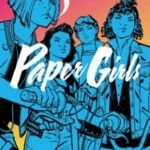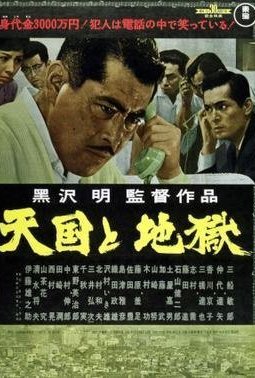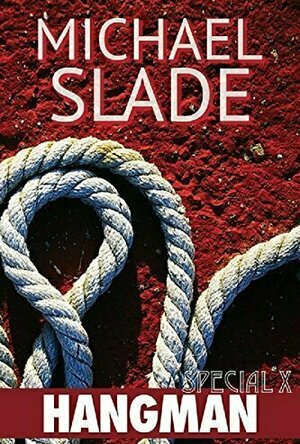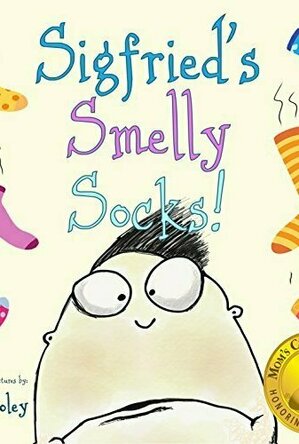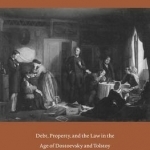
Bankrupts and Usurers of Imperial Russia: Debt, Property, and the Law in the Age of Dostoevsky and Tolstoy
Book
As readers of classic Russian literature know, the nineteenth century was a time of pervasive...
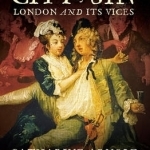
City of Sin: London and Its Vices
Book
If Paris is the city of love, then London is the city of lust. For over a thousand years, England's...
Joe Goodhart (27 KP) rated Paper Girls: Volume 1 in Books
Nov 30, 2020
So, yes, just as with other BKV-helmed series, the characters are well-defined, given depth that is a progressional unfolding. Each issue allowed for me to see each of the main characters - Erin, KJ. Tiffany and Mac - for who they were and some of their moral fibers, if you will.
As good as Vaughn was at the writing, equally impressive was Cliff Chiang's art. The muted colors (except where needed, as deep red for a wound) really helped the story, making me feel like it was really the eighties instead of 2018! From the cars driven to the newspaper headlines to the housing developments layouts, it felt just like the time frame as the setting!
The easiest way to sum up this series is it is like Netflix's STRANGER THINGS but with all-girl main characters. I recall the later volumes being more science fiction-y as the series progress, but, yeah, definitely like STRANGER THINGS.
All I can say in closing is this is an awesome series! It is a lot of fun, and it is clear during reading it that BKV and Chiang had as good a time making it as I did reading! DEFINITELY CHECK IT OUT!
Kirk Bage (1775 KP) rated High and Low (1963) in Movies
Jan 28, 2021
It plays like two films for the price of one, the first a claustrophobic mood piece with a staged feel, reminding me of Hitchcock’s Rope, and the second a frantic chase movie where the forensic evidence is picked apart in intricate detail, like a less graphic Seven. The print on BFI is not great, so it actually feels older than it is. It is also pretty long at 143 minutes, and feels like it takes an age to get going. Therefore, although some moments and key images have stayed with me, I can’t honestly say I felt gripped or tense in any way. The stakes didn’t feel as high as I would have hoped for, and tonally it is a little uneven. In conclusion, it has much to offer and details in isolation are very impressive, but for me it was something of a let down.
Kristina (502 KP) rated Hangman (Special X, #8) in Books
Dec 7, 2020
This book started out so slow for me, honestly. The storyline sounded interesting and I wanted to get as anti-Valentine's Day as I could, so I grabbed the closest book on my TBR list. I was reading what I assume was a 2000 paperback copy, so the print was really small and took some getting used to. For the first hundred pages or so, I found my attention straying. Somewhere between page 100 and page 171, I became involved. Finally, the mystery was getting juicy and the murders were getting more gruesome. I had so many different suspects - Justin, Ethan, Peter himself!, a juror from Peter's trial, a psychotic fanatic. Of course I won't give anything away. But the twists and turns are so unexpected, you can't help but scramble for people to be the face behind the mask. It may have taken me a while to get into, but once I did, I was hooked. I'm ashamed to say I almost put this aside to finish at a much later date or just not bother with at all, but because I'm stubborn, I stuck with it, and I'm glad I did. The only spoiler I will provide is this: I'm greatly disappointed that we don't discover who killed Anna, the little girl Peter was accused of murdering. It may not have been important to the overall moral of the story, or even the plot, but it would have been nice to see some kind of justice for that poor girl.
Climate Justice: Vulnerability and Protection
Book
The fruit of twenty years of moral reflection on the emerging greatest challenge to humanity of the...
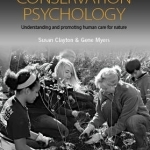
Conservation Psychology: Understanding and Promoting Human Care for Nature
Book
People are inseparable from natural ecosystems, and understanding how people think about,...
Ivana A. | Diary of Difference (1171 KP) rated Sigfried's Smelly Socks! in Books
Oct 2, 2020
I strongly believe that children are meant to love this book - it is full of wittiness and it made me giggle a few times, when the author describes how different coloured socks smell differently, and all so awful.
This book has a tendency to make you imagine the smells in your mind while reading and watching the illustrations. It can even make you feel like you could actually smell them in the room. Lovely description, though some parts might be too hard to be understood by the younger audience:
But nothing compares to the other smell that burns the hairs on my head.
While we discuss the subject of how the book focuses on dirty socks and some people might find it unbearable - I would point to the fact that this book is a perfect masterpiece in reminding the little cute monsters that they need to keep their socks (and their hygiene in general) neat and clean. It is a great moral and life lesson through a very funny story told by the silly Sigfried, who seems to notice all the rotten smells that surround him.
Lovely read, and a lovely told story in a witty way. This book deserved a 4 out of 5 stars for the sole reason of this book maybe being too rich in the vocabulary for the audience it wants to reach.
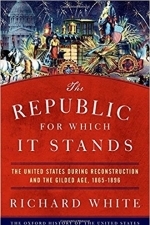
The Republic for Which It Stands: The United States during Reconstruction and the Gilded Age, 1865-1896
Book
The Oxford History of the United States is the most respected multivolume history of the American...
History Politics
